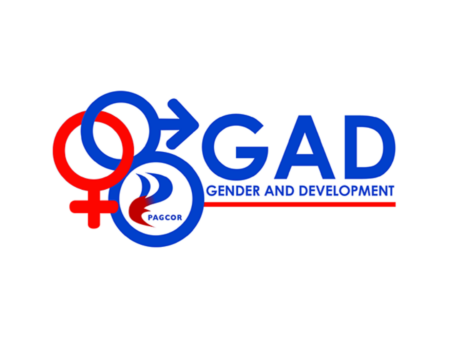New Zealand is exploring significant changes to its gambling industry, hinting at the potential introduction of legal online gambling. The country aims to regulate iGaming by 2026, with a recent proposal poised to expand the monopoly of the operator TAB NZ. Racing Minister Winston Peters has championed these changes, which promise to secure the future of New Zealand’s racing and betting industries.
The Current State of Gambling in New Zealand
New Zealand’s gambling landscape is highly regulated, with TAB NZ holding an exclusive monopoly on sports betting, including greyhound and horse racing activities. Established under the Racing Industry Act 2020, TAB NZ serves as a critical lifeline for the country’s racing industry, contributing approximately 90% of its revenue.
In addition to its financial support, TAB NZ fosters the growth of sports and racing sectors, creating a robust and interconnected ecosystem. However, the growing influence of offshore online gambling operators poses a threat to this established structure.
The New Proposal: Expanding TAB NZ’s Monopoly
Under the latest proposal introduced by Racing Minister Winston Peters, TAB NZ’s monopoly would extend beyond its current scope to include both land-based and online wagering activities. This bold move is intended to safeguard the future of the racing industry while countering competition from offshore betting platforms.
According to Peters, “This legislation will enhance the long-term sustainability of New Zealand’s racing industry by making TAB NZ New Zealand’s sole provider for sports and race betting both on land and online.”
The legislation envisions granting TAB NZ exclusive rights to all sports and racing betting activities, effectively consolidating its position as the dominant gambling operator in the country. This measure seeks to mitigate revenue loss to foreign operators, thereby strengthening New Zealand’s gambling framework.
Protecting the Racing Industry
A core aim of the proposed reforms is to ensure the sustainability of the racing industry. With 90% of its funding derived from TAB NZ, the sector’s survival is closely tied to the operator’s success. By granting TAB NZ exclusive control over online gambling, the government aims to shield the racing industry from external market pressures and ensure steady revenue streams.
This proposal is seen as a protective measure to counter the potential dilution of funding that could occur if offshore operators gain access to New Zealand’s gambling market.
Legislative Journey of the New Proposal
Before the proposed changes to the Racing Industry Act 2020 can take effect, the bill must undergo a comprehensive legislative process. Currently referred to the Governance and Administration Committee, the bill will require rigorous debate and approval by lawmakers.
If passed, this legislation will not only expand TAB NZ’s monopoly but also grant the Racing Minister additional regulatory powers, reinforcing government oversight in the gambling sector.
Addressing Concerns: Competition from Offshore Operators
The influx of offshore online gambling platforms has raised concerns about unregulated competition. These operators often lure local players with attractive offers, posing a direct challenge to TAB NZ’s monopoly. The proposed legislation aims to curb this by restricting access to New Zealand’s gambling market and ensuring that revenues remain within the country.
In addition, the government plans to introduce stringent penalties for unauthorized operators, thereby safeguarding the integrity of the domestic gambling framework.
A Glimpse Into iGaming Regulation in New Zealand
While the current proposal focuses on TAB NZ’s monopoly, New Zealand is also contemplating a broader regulatory framework for iGaming. Lawmakers are exploring measures to:
- Protect vulnerable audiences: Ensuring robust age-verification systems to prevent underage gambling.
- Limit online gambling licenses: Reducing market saturation and maintaining a controlled environment.
- Promote responsible gambling: Implementing strict advertising regulations to minimize gambling-related harm.
These initiatives reflect New Zealand’s commitment to balancing economic growth with social responsibility.
Public and Industry Reactions
The proposal has elicited mixed reactions from stakeholders. Advocates argue that strengthening TAB NZ’s monopoly is essential for protecting the racing and sports industries, which rely heavily on the operator’s funding.
Critics, however, caution against the risks of a monopolized market. They highlight the potential for reduced competition, which could stifle innovation and limit consumer choice. Furthermore, concerns have been raised about whether TAB NZ can effectively compete with technologically advanced offshore operators in the online gambling space.
The Road Ahead for New Zealand’s Gambling Industry
New Zealand’s move to regulate online gambling marks a pivotal moment for its gambling industry. While the proposed reforms aim to secure the future of the racing sector and counter external competition, their success will hinge on effective implementation and robust regulatory oversight.
As the legislative process unfolds, all eyes are on the Governance and Administration Committee and the subsequent parliamentary debates that will shape the future of gambling in New Zealand. If approved, the reforms could redefine the country’s gambling landscape, setting a benchmark for other nations grappling with the rise of online gambling.
Conclusion: The Proposed Changes
New Zealand’s proposed changes to its gambling industry underscore the government’s resolve to protect its racing sector while addressing the challenges posed by offshore operators. By consolidating TAB NZ’s monopoly and exploring comprehensive iGaming regulations, the country aims to strike a delicate balance between economic growth and responsible gambling.
FAQs About Proposed Changes to New Zealand’s Gambling Industry
1. What is the purpose of the proposed changes to New Zealand’s gambling industry?
The primary purpose is to safeguard the sustainability of New Zealand’s racing industry by expanding TAB NZ’s monopoly to include online wagering activities. This ensures steady funding for the racing sector and protects the industry from competition posed by offshore online gambling operators.
2. What does the proposal mean for TAB NZ’s monopoly?
The proposal aims to extend TAB NZ’s current monopoly on sports betting and racing to also cover online wagering activities. This would make TAB NZ the sole provider of gambling services for both land-based and online betting in New Zealand.
3. Why is the racing industry important to New Zealand’s economy?
The racing industry is a significant contributor to New Zealand’s economy, with TAB NZ providing approximately 90% of its funding. The industry supports jobs, tourism, and related sectors, making its sustainability a national priority.
4. How will the proposal impact competition from offshore operators?
The proposed changes are designed to reduce the impact of offshore gambling platforms by restricting their access to New Zealand’s market. This ensures that revenues stay within the country and are reinvested in local industries like racing and sports.
5. What additional powers will the Racing Minister have under the new proposal?
The Racing Minister will gain new regulatory authority, enabling them to oversee and implement the proposed changes to the gambling framework. This includes enforcing rules that protect the integrity of TAB NZ’s operations and curbing unauthorized gambling activities.
6. What are the key changes to the Racing Industry Act 2020?
The new proposal includes amendments to the Racing Industry Act 2020 to grant TAB NZ exclusive rights over both land-based and online sports and race betting. These changes aim to modernize the framework while securing funding for the racing sector.
7. How does the proposal address gambling harm?
New Zealand is considering broader iGaming regulations that include robust age-verification systems, strict advertising controls, and measures to limit online gambling licenses. These initiatives are intended to minimize gambling-related harm and protect vulnerable groups, such as younger audiences.
8. What challenges does the proposal face?
The proposal must pass through the Governance and Administration Committee and gain approval from lawmakers. Critics have also raised concerns about the risks of reduced competition and whether TAB NZ can effectively compete with offshore operators in the online gambling space.
9. How will the changes affect consumers in New Zealand?
If the proposal is implemented, New Zealand consumers will have access to a regulated online gambling environment operated solely by TAB NZ. This may limit the diversity of platforms available but ensures a safer and more controlled gambling experience.
10. When will the proposed changes take effect?
The government aims to regulate iGaming by 2026. However, the timeline for implementing the proposed changes will depend on the legislative process and approval by lawmakers.
11. What is the government’s stance on offshore operators?
The government views offshore operators as a significant threat to TAB NZ’s monopoly and the funding of the racing industry. The proposal includes measures to restrict these operators from accessing the New Zealand market and competing with TAB NZ.
12. How will the new regulations benefit the racing sector?
By granting TAB NZ exclusive control over online and offline gambling, the new regulations aim to ensure a steady flow of revenue to the racing sector. This funding is critical for maintaining the long-term sustainability of racing in New Zealand.
13. What steps are being taken to regulate iGaming in New Zealand?
The government is considering a comprehensive framework for iGaming that includes licensing limits, enhanced age-verification systems, and advertising restrictions to promote responsible gambling.


















